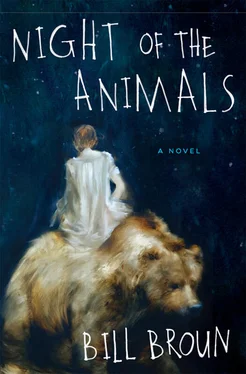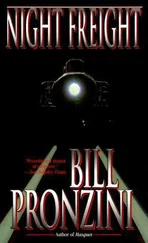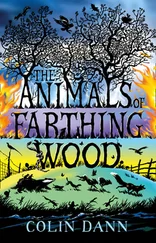“Mother,” her daughter suddenly said from the front. “These boys are gullible. You’re going to worry them.”
His gran had whispered into Cuthbert’s ear, leaning hard against him, “I wouldn’t ever lie to thee or to Drystan. Ever.” He’d felt safe and happy smooshed into her warm, damp muscles; she felt like some enormous dolphin, carrying him out to sea.
the death of the wheat farmer
BEFORE THEY ARRIVED AT THE OLD HANDLEY relatives’ house, his gran managed to tell Cuthbert the whole history of the region, even how she’d met his long-dead grandfather.
“Tell us, Gran.”
“Ha! You’re really going to suffer now,” she said. “It was this one lovely day, in 1919. I had my long black hair unpinned and hovering in the wind — the villagers sometimes used to call me ‘the Basque Beauty’—and I walked two pretty miles into the town of Bewdley, from the country, just beyond the Wyre, to buy a few stalks of this new fruit being sold called ‘banans,’ as I called them.”
These “banans” had stopped appearing at the grocer during the war, their gran explained, but they were finally back, she’d heard, and she couldn’t wait. They were beautiful things, soft and aromatic, “loik a kind of custard you can hold.” The fish and fruit grocer, Mr. William Wood, swore they were good for heart problems and “general nutrition” (though any girl from the Clees knew you used foxglove for whatever ailed the heart).
“Eat as thee please,” Mr. Wood had said. He was staring at Winefride with something just short of awe. She had long, deft fingers and that hair of hers was as shiny-black as Scottish obsidian — and blown over her one ear just so.
“I was a tall girl, and healthy, and Mr. Wood knew my family was poor, too. Back in the owd times, most of the country people had little meat to eat, but I gave it up on my own as a young lass.”
Being a vegetarian at the time, Winefride said, attracted incredulity in the town, and “a kind of pity” in the country.
But that day in 1919, she stood there near a table piled with bananas, oranges, and plums, pulling the bruised skin off three bananas in a row. She dropped a skin into her purse, almost reluctantly, and plucked another small, squat cylinder off the fruit.
“I’ll be making myself sick,” she said. “You shanna be canting about this to everyone, oo’ll be, Mr. Wood?”
Mr. Wood, a hardy man with a large belly, was amazed she could devour so much.
“Thee ’oodn’t be the first,” he said. “The children are mad for them. They can’t get enough.”
“Dack, dack, dack,” she had said, using the common pig-call from her neighborhood in the hills. “Dack, dack, dack,” filling her maw. “I’m a gilt-swine when it comes to banans.” And just then, as she stood with her mouth stuffed with this tropical food, a young farmer, Alfred Wistan Wenlock, not long back from the Great War, walked into the shop.
“’E wasn’t much of a sight — just a thin wimbling, I thought,” she recalled. “Loik summat grown in a soil of sadness. And I could see he drank too much.”
A sickly veteran with roots in Northumbria and a defining talent for impracticality, Alfred came from a long line of undistinguished clerks. He’d never quite fit in at Bewdley, but having survived the war, he felt resented and guilty; so many of the town’s own sons, and many of his friends, lay buried in Flanders and France among the ten thousand dead from Worcestershire. Anguish never was far from his heart, and homemade brandy never far from his lips. Occasionally, to ease his sadness, he painted harmless watercolors of town fountains and churchyards. The war depressed land prices, too, and Alfred took his paltry veteran’s pay from the war and managed to buy a small cottage and plot in the hamlet of Far Forest on the western edge of Wyre.
He was going to grow wheat — an ambitious if not foolhardy crop for the district.
“Miss,” he said, with a trace of a smile. “Those bananas,” he said. “I had one in London. They are as lovely as anything I’ve ever seen.” He added, peering at her carefully, “Almost.”
They started talking. Alfred told her about the little plot, his plans for a farm, and Winefride, despite knowing better, found herself smitten. She lifted her hand to her mouth, trying to cover a fleck of the fruit that had emerged.
“Mmm,” she said. “Oh god. Yes.”
THE TWO MARRIED at St. Cuthbert’s Church in Far Forest on a rainy spring day in 1921; Winefride wore a silk gown that practically her entire village had helped stitch.
“I carried a bouquet of purple saxifrage with a few straws of wheat stuck in for luck,” she said. The rain, that day, had seemed providential, “a gift from the Green Man,” as she put it, “from the otters.”
The union brought much love and abundance, and Alfie’s field became renowned around Wyre for its flavorful, nutlike, quality cereal. Yet the small holding’s revenue never grew much; every year in the 1920s, it seemed wheat prices tumbled a little more. Cheap American wheat had begun pouring into England, too. Many farmers grew angry and moved to Birmingham; most who remained moved into dairy or subsidized sugar beets.
“Alfie,” Winefride remembered telling her husband. “If we have a few young cows, think of all the cheese we’ll sell. And they’re such lovely creatures.”
“But bread,” he answered. “Who doesn’t eat bread? Bread is everything.”
“I’d rather a’kern bread, Alfie. This wheat — it worries me, my love.”
“One day,” Alfie said, “wheat will conquer all.”
Two daughters and a son came, and in 1929, Cuthbert and Drystan’s mother, Mary, was born. But 1929 also brought more rain and more and more and more of it — and then poverty.
All summer, Winefride would hear around the village the phrase “wheat loves dry feet.” She grew to hate the words. Day after day, she would watch Alfie, his cheeks scarlet, trudge out to their plot with his shovel and pickaxe, struggling to carve channels and build temporary wooden sluices in mud as thick as what he’d faced at the Battle of Flers-Courcelette. He would come back, sometimes clutching evidence of what he considered his failure, torn straws of the yellow “gally wheat” that he would show to his wife and hurl down in shame.
ONE MORNING in the early autumn of 1933, Alfie drank his usual morning brandy with a raw egg in it and ate a bowl of porridge he heavily salted. On the wireless, he listened briefly to the news — Germany was withdrawing from the League of Nations, and a great drought was ravaging the American state of Oklahoma. Alfie went out to his scrubbly wheat field, hoping to salvage a bit of wheat for personal milling. The family needed food.
Later that morning, little Mary found her father, fallen in the mud, gasping for breath, his face bright red.
“Get up, Daddy!” She ran back to the house, terrified, screaming for her mum.
Alfie was carried inside by Winnie herself, and a doctor was sent for.
“It’s acute lobular pneumonia,” the doctor told Winefride, outside the sickroom. “It’s tough, Winnie. It’s the kind that gallops. You need to get the vicar over here.”
“Nonsense! He was fine yesterday.”
So she ran to the forest, tears in her eyes, gathering wild garlic for a tincture she made with brandy and vinegar. She tore her hands up, pulling the “crow’s garlic” up through nettles and haw branches, and when she returned, her hands dripping blood, the vicar was there, praying over his body, his feet still wet with mud.
THEN CAME, Winefride told the boys, a destitution that ended the world of Merrie Worcestershire. While many of their friends fled for the city, Winefride, numb with grief, turned back to the Wyre.
Читать дальше












